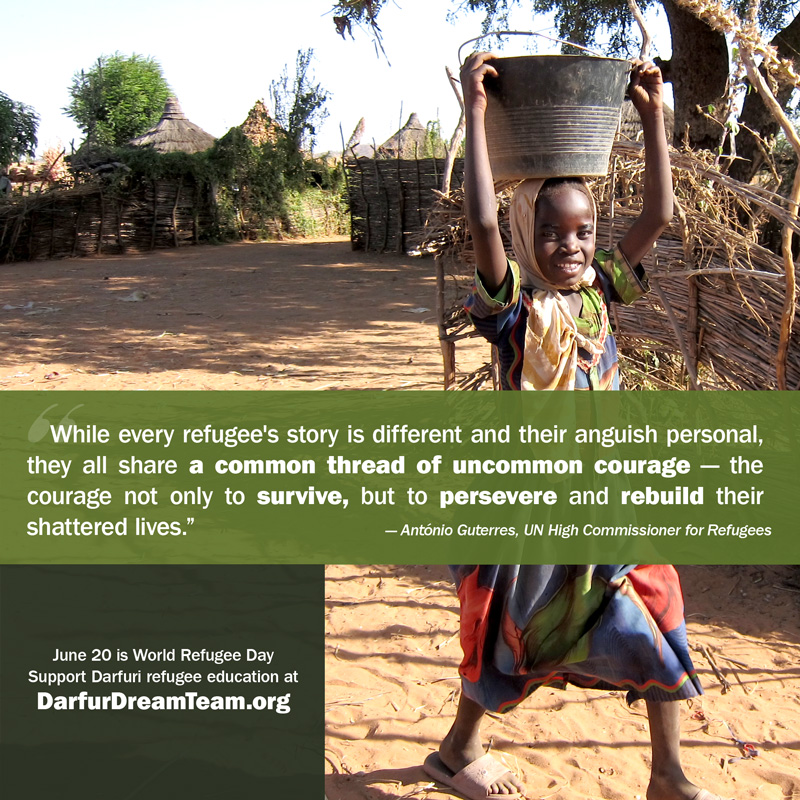
Today, as we commemorate World Refugee Day, millions of refugee voices are being highlighted to attain our solidarity and urge us to act. Amid ongoing and newly erupting conflicts, the world is witnessing the production of disturbing numbers of new refugees, internally displaced, and stateless populations – at a rate of one person every four seconds or more than 20,000 per day. By the end of 2012, the number of people displaced from their homes due to conflict, persecution, or natural disasters reached 45.2 million, the highest number since 1994, according to a recent report by the UN Refugee Agency, or UNHCR,; 15.4 million of those displaced are refugees. The report states that 7.6 million people were newly displaced in 2012, while only 2.7 million found solutions to their displacement.
Each refugee experience is different. Many live in camps established by UNHCR and aid organizations, but the number of urban refugees is growing; and the challenges faced by rural and urban refugees differ dramatically. Some refugees have been displaced multiple times; having again experienced violence and mass atrocities akin to what first forced them from their homes. Many, more than 70%, are women and children; families struggle to create stability, structure, and safety in refugee settings. Most refugees just want to return home. However, returning home is a far off reality for many. The three most common solutions for individual refugees are returning home, naturalization in the host country, or third country resettlement. Unfortunately, continued violence, human rights violations, and a lack of long-term political solutions continue to prevent many from returning home. UNHCR considers 6.4 million refugees to be living in such protracted situations today.
Such large numbers can seem abstract and make it difficult to visualize the global refugee crisis. Therefore, humanizing these statistics with refugee accounts is essential to understanding the challenges of being a refugee and the need for long-term solutions. We are only able to capture a few of the millions of voices who urgently need to be heard here, but we also encourage you to take a moment to listen and to read the refugee accounts that are being shared on social media and in the news today.
Ibrahim*, a Sudanese refugee from South Kordofan and based in Cairo, explained that, after what he and other Sudanese refugees have been through in Cairo – continued discrimination, targeted violence, arbitrary arrests and detentions, etc. – he would rather risk being targeted and killed by the government in Sudan than remain a refugee in Cairo forever.
Fesseha*, an Eritrean refugee, has been living in Sudan since 1995 to avoid indefinite conscription in Eritrea; despite the hopelessness he feels because he is unable to find work and establish a life, he says he cannot return to Eritrea.
Nephisa, a 13-year old Darfuri, became a refugee just weeks ago when she and her family were forced from their home due to the recent uptick in violence in Sudan’s Darfur region. Following an attack, they fled to a camp in eastern Chad where more than 280,000 other Darfuris have been living in a protracted refugee situation for close to a decade. Nephisa and her family want to return home, but are unsure of whether their house has been burned or when it will be safe to return.
Paul Harling, U.N. High Commissioner for Refugees from 1978-85, says that there are a few challenges in our world that are “more pressing than those of finding humanitarian solutions to refugee problems.” He explains that this is because the factors which lead to refugee situations, such as poverty, to lack of democracy, discrimination, and social crises, are challenging to overcome. However, there is hope for peace and it can start with raising awareness of the global refugee crisis and advocating for an end to mass atrocities and democratic transitions. Start advocating today by asking your member of Congress to cosponsor H.R. 1692.the Sudan Peace, Security, and Accountability Act of 2013.
*Some names have been changed to protect the identity of the refugees featured.
Nada ElSayad contributed to this post.
Photo: Enough Project

